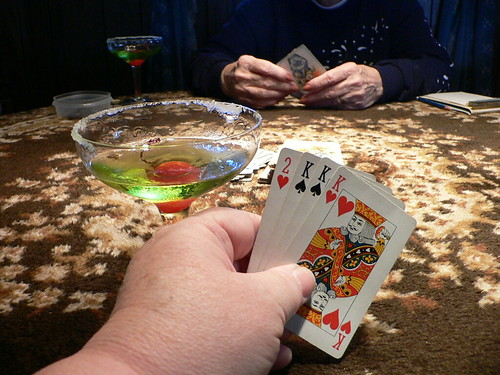Common travel scams

Playing a game of “65.” Photo: Bev Sykes / Flickr Creative Commons
Travel teaches you many things, some pleasant, others not so pleasant. The number of friendly, helpful people far outnumber the scammers, but they do exist.
The BBC Travel website featured an article titled Buyer Beware: 10 Common Travel Scams. The locations vary, from the airport to the street to a restaurant. It’s wise to keep vigilant at all times. Although it should be said that many places can be even safer than your hometown.
From past experience, it seems like the most likely time you’ll get scammed is within the first 24 hours you land in a new country. You don’t know how anything works, you haven’t befriended any travelers or locals who can warn you, and maybe you’re tired from a long flight. As a result, your guard goes down.
One tip is to read the “Safety” section of a guidebook before arrival. Countless travelers have fallen prey to swindles that could have been easily avoided if they’d checked up on the local con games first.
It pays to be suspicious of any strangers that approach. If you initiate the contact, that’s usually fine. However, when someone else makes the first move, it’s better to be careful.
Sometimes getting tricked can be so frustrating that it can be easy to blame the whole country for what went wrong. I know that’s happened to me. Try to keep a cool head, getting angry only worsens the situation.
Have you ever been scammed? Please share your stories and advice in the comments.

January 10th, 2011 at 5:51 am
Stephen,
Hey, that batik gallery scam also happened to me in Yojgyakarta (Jogja), Indonesia. Luckily, I realized it and got out before buying anything. I got approached by “student artists” in Beijing, China as well. Very common art exhibit scam there too.